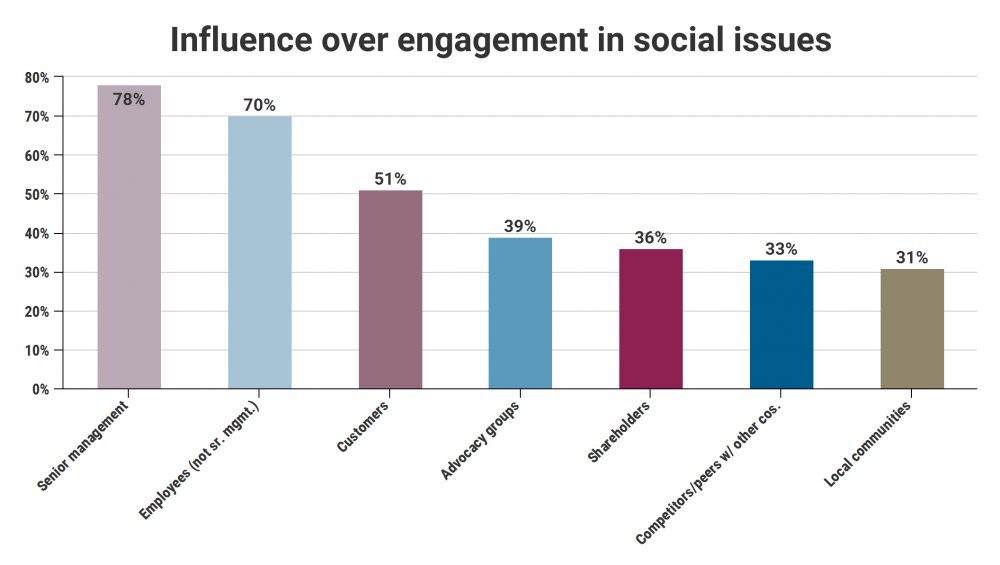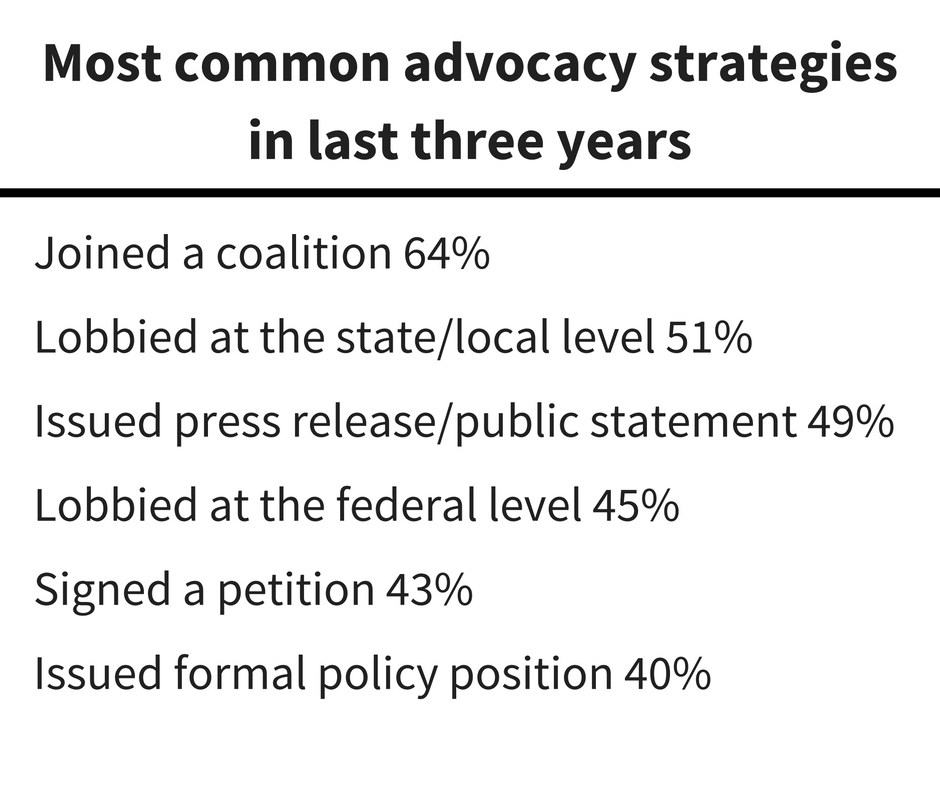
Major corporations are facing growing pressure to weigh in on social issues — and much of this pressure is coming from employees themselves, says a new Public Affairs Council study, Taking a Stand: How Corporations Speak Out on Social Issues.
The poll of 92 businesses in a wide variety of industries finds that – over the last three years – 60 percent have experienced rising stakeholder pressure to speak out on social issues such as discrimination, the environment, education and human rights. None of the respondents reported that pressure had decreased.

According to the survey, the two groups with the most influence over a company’s decision to get involved are senior management and regular employees. This counters the common narrative that corporations speak out primarily because they’re trying to pacify external critics.
In fact, only half the respondents said customer opinions have affected their decision to get involved or not get involved, and less than 40 percent said activists, shareholders and others groups have been influential.
A strong majority of companies also believe that higher expectations for engagement on social issues are here to stay. Seventy-four percent of respondents said they expect pressure on firms to get involved will increase over the next three years.
Why this newfound interest in social issues? It’s actually not that new when you consider the number of firms that have weighed in on environmental and discrimination policies in recent decades. What’s different now is: (1) the level of controversy arising from laws that restrict basic rights to people based on sexual orientation or gender identity, (2) the realization in Corporate America that many social issues are really business issues and (3) the growing willingness of companies to step out of the shadows and take a public stand.
Earlier this year, for instance, North Carolina passed a controversial law that eliminates LGBT anti-discrimination protections and requires that people in government buildings may only use restroom and changing facilities that correspond to the sex on their birth certificates.
More than half of the companies participating in the survey said they have been directly involved in efforts to end discrimination and restrictions based on sexual orientation or gender identity. Some companies have gone so far as to boycott events or business activities in North Carolina.
Expectations for involvement have been highest among companies with more than $15 billion in annual revenue. More than three-quarters of these firms said they experienced increased pressure to weigh in on social issues.
Overall, high percentages of companies said they have been most involved in recent efforts to protect the environment (74%); end discrimination/restrictions based on sexual orientation (59%), gender (54%), gender identity (52%) or race (50%); improve access to quality education (59%) and protect human rights abroad (49%).
Publicly traded corporations were more likely than private companies to experience growing pressure to engage, and they were more likely to be involved in efforts to support various social issues. Very few companies, public or private, reported they had been involved in efforts to oppose any of the listed issues.
 It’s worth noting that many companies are going beyond issuing press releases to demonstrate their support. In fact, they are using their well-developed lobbying operations to try to change policies they oppose. Among survey respondents, the most common strategies used in social issue advocacy have been joining a coalition and lobbying at the state or local level.
It’s worth noting that many companies are going beyond issuing press releases to demonstrate their support. In fact, they are using their well-developed lobbying operations to try to change policies they oppose. Among survey respondents, the most common strategies used in social issue advocacy have been joining a coalition and lobbying at the state or local level.
 Doug Pinkham is president of the Public Affairs Council and a Trustee for the Institute for Public Relations. Follow the Public Affairs Council on Twitter @PACouncil.
Doug Pinkham is president of the Public Affairs Council and a Trustee for the Institute for Public Relations. Follow the Public Affairs Council on Twitter @PACouncil.



